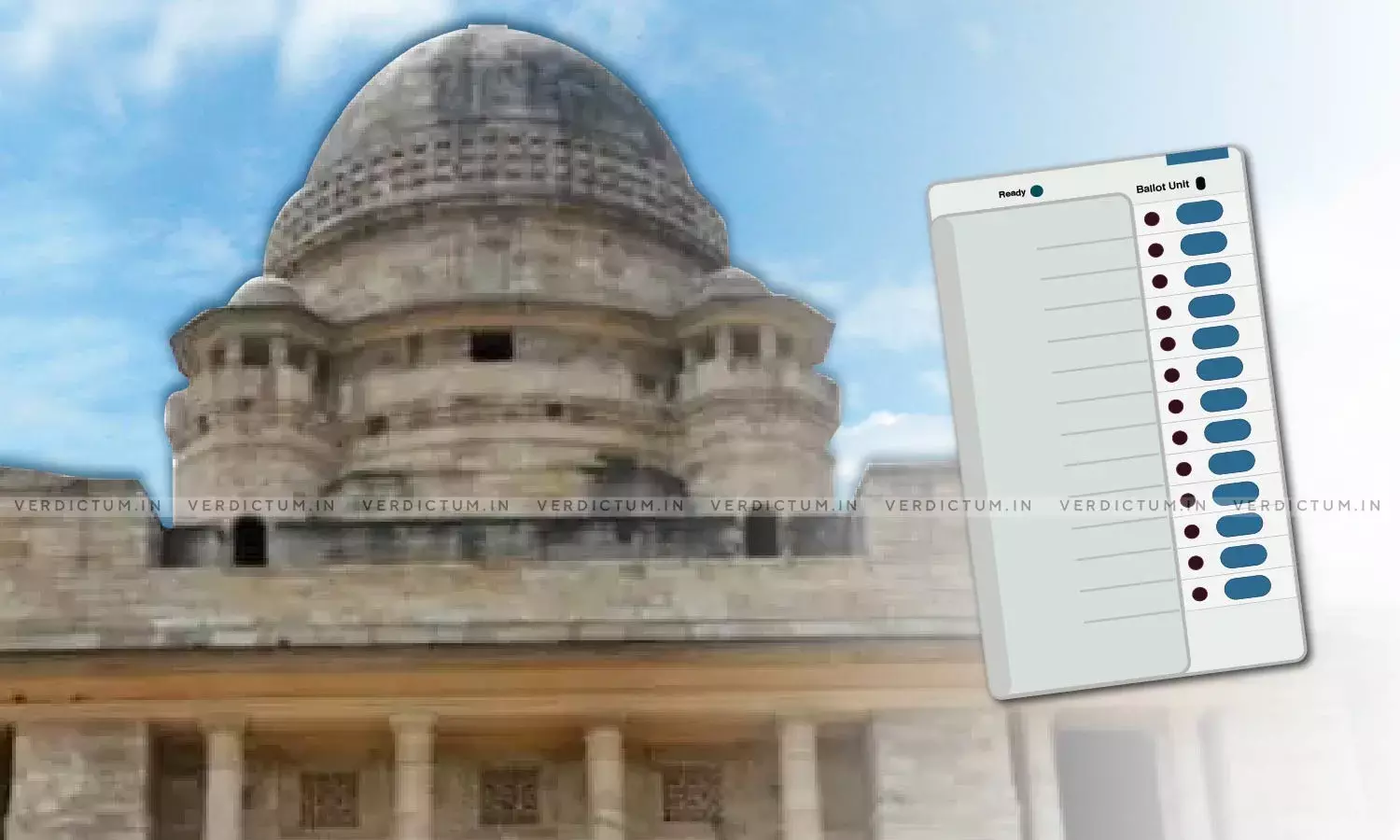EVM Defect Does Not Vitiate Election Unless It Is Proved That Result Was Materially Affected: Bombay High Court
The Bombay High Court, Nagpur Bench, held that a defect in an Electronic Voting Machine (EVM) is not a valid ground for invalidating unless it is proved that such defect materially affected the election results.
The Court dismissed a Petition seeking to set aside a Gram Panchayat election result, on the ground that 1019 people had voted but only 1018 were counted in one of the wards.
The Bench comprising Justice A.S. Chandurkar And Justice Vrushali V. Joshi held, “Unless evidence is recorded and witnesses are examined who could vouch the fact that in view of the defect in the Electronic Voting Machine the result of the election was materially affected, it would not be possible to record any conclusive finding in this regard. Merely stating that there was a defect in the Electronic Voting Machine which also would be require to be proved would not be sufficient to conclude that the result of the election was vitiated on this count”.
Advocate S.D. Chopde appeared for Meerabai (Petitioner), Assistant Government Pleader N.P Menta appeared for the Returning Officer and Advocate O.Y Kashid appeared for the Contesting Candidate.
Meerabai and the contesting candidate participated in Gram Panchayat Sheri for the position of Sarpanch. Meerabai contended that in one of the wards in the middle of voting, the Electronic Voting Machine (EVM) malfunctioned. Therefore, the machine was changed and the voting resumed. Thereafter, it was reported that 1019 people had voted but only 1018 were counted. Meerabai approached the Returning Officer raising objections, though even then the Contesting Candidate won the elections. Aggrieved, Meerabai approached the Court by way of a Writ Petition seeking election results to be set aside and prayed for an inquiry into the vote difference.
The Court placed reliance on the case of Laxmibai Versus Collector, Nanded & Others [(2020) 12 SCC 186]. The Court noted that the remedy available to any aggrieved person against the acceptance or rejection of the nomination of a candidate was by way of an election petition. The Court reiterated that the Maharashtra Village Panchayats Act, 1959 (Act) lays down provisions for redressal of grievances, though the High Court can exercise extraordinary jurisdiction. However, such jurisdiction is discretionary and bound by the restraints under Article 243-O of the Constitution.
The Court asserted that one can attribute defeat in an election due to a defect in the EVM but stating that such defect resulted in materially affected is another thing. Such contention would require findings to be recorded based on relevant materials. The Court emphasized, “In other words, unless evidence is recorded and witnesses are examined who could vouch the fact that in view of the defect in the Electronic Voting Machine the result of the election was materially affected, it would not be possible to record any conclusive finding in this regard”.
The Court deemed that even if the case is considered exceptional under Article 226 of the Constitution, the ground pleaded by Meerabai is not listed in Section 15 (5) of the Act.
Accordingly, the Court dismissed the Petition.
Cause Title: Meerabai v Returning Officer to the Election/ Tahsildar (2023:BHC-NAG:16110-DB)












